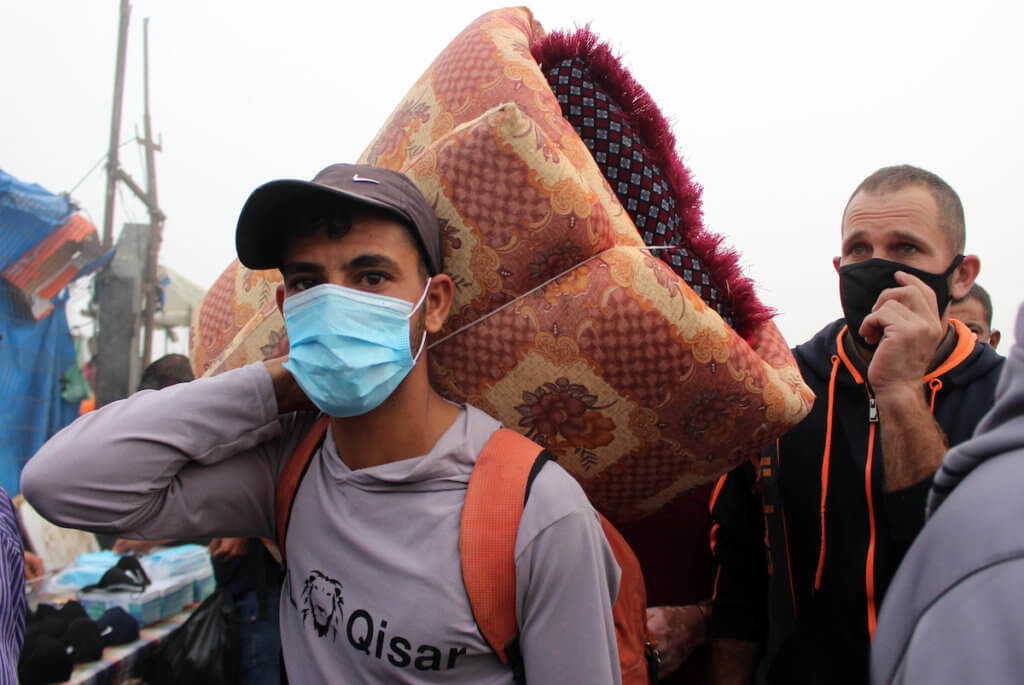Palestinian laborers wear masks as they queue to enter Israel through the Mitar checkpoint in the West Bank city of Hebron on June 28, 2020. (Photo: Mosab Shawer/APA Images)
Palestine surpassed 10,000 recorded cases of the coronavirus this week, a bleak milestone for Palestinians as the second wave of the COVID-19 continues to grow.
The last 24 hours in Palestine were particularly worrying, with over 400 cases and two deaths reported, raising the death toll to 67 people.
The number of COVID-19 patients in the Intensive Care Unit (ICU) also increased significantly over the past week, with at least 40 people in critical condition.
COVID-19 cases in Hebron, the epicenter of the outbreak, continue to swell with more than 5,000 of the 8,750 active cases of the coronavirus in the Hebron area alone.
This morning in Hebron, Israeli forces demolished a COVID-19 testing clinic that was being built by locals to help with the overflow of the coronavirus in the district.
According to local media, Israeli forces demolished the clinic in the middle of the night, nearly a week after delivering a demolition order on the building.
The owner of the land, who donated the plot and the clinic to the municipality, told reporters that the demolition happened just one day after Israeli authorities allegedly retroactively approved the building plans.
Additionally, while the majority of the outbreaks are being recorded in cities and village, there is a worrying increase of COVID-19 cases in Palestinian refugee camps.
In a single day, there were 23 cases reported in the Aqbat Jabr refugee camp in Jericho. The Dheishe and Beit Jibrin (Azza) refugee camps in Bethlehem each have dozens of cases, while the Arroub and Fawwar camps in Hebron have also reported several cases of the virus.
Most Palestinian refugee camps suffer from worn down infrastructure, poor electricity, lack of water, and severe overcrowding
The close proximity of people within the camps, couple with a severe lack of services, has led to fears that a bad outbreak in any of these camps could be extremely devastating to the community.
In the Aida refugee camp, where I live, there have only been a handful of cases, and sadly, the death of an elderly man who contracted the virus.
Despite the relatively small number of cases in Aida, trying to stay safe while living in the camp has proved increasingly difficult.
Just a walk down to the local mini market means passing through narrow streets, where it is nearly impossible to keep a distance from passersby.
On streets where there are confirmed cases of the virus, some people are even scared to open their windows, for fear that they could contract the virus, because of the arms length distance between their window, and their neighbors window.


